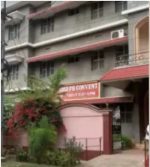Golaghat: Gunaram Khanikar, who documented herbal medicine and was a household name in Assam, passed away at a private nursing home in Guwahati at 1.30 am Friday.
He was 66 and a bachelor.
Family members said his last rites would be performed at his ancestral house Saturday.
The government will accord a state funeral to Khanikar, who was born at Chakordhora, a hamlet in Golaghat district, on March 22, 1949.
During his career as a practitioner of herbal medicine, he developed over 60 medicines for ailments like diabetes, high blood pressure, obesity, malaria and cancer.
A BSc in botany from Debraj Roy College here, Khanikar set up the Regional Research and Training Centre on Indian Traditional Treatment at Tetelitol in 1992.
The centre does research, development and study of traditional treatment methods in the Northeast and protects medicinal plants from extinction.
He also visited Guwahati every month to attend to patients.
“He had treated nearly four lakh patients, including those from Germany, the Netherlands, Belgium, Japan, England, West Asia and other South Asian countries. His birthday is celebrated as Medicinal Plants Day. He was senior programme officer with the Assam chapter of Voluntary Health Association,” said Anumita Saikia, secretary of the centre.
“Our centre operated throughout the week. He attended to nearly 70 patients daily and did not charge any fees. We are committed to carry forward his legacy,” said Saikia.
Khanikar has many firsts to his name when it comes to herbal medicine.
In 2005, he established the Dr Gunaram Khanikar Herbal Museum in his birthplace with the help of the district rural development agency.
The museum has samples of various types of herbs and articles on herbal medicine, and houses a library of herbal medicinal books.
In 2007, he started a mobile herbal hospital for the promotion and protection of herbal medicine and appealed to people to plant at least 10 medicinal saplings in their household. He also established a botanical garden at Dagaon in Golaghat.
The nursery, spread over two bighas of land, has more than 500 species of medicinal herbs.
Students of schools, colleges and universities of the state visited the garden regularly.
He wrote 43 books and published and edited an Assamese periodical, Bondorob aru Arogya, since 2006.
He was conferred numerous awards for his innovation in herbal medicine, including the Hahnemann Memorial award, Rashtriya Gaurav award, International Intellectual award and so on.
Anil Kumar Sarma, the head of department of swastha vritta or community medicine at Government Ayurvedic College and Hospital in Guwahati, told The Telegraph that the cure for many ailments could be found in nature and that was exactly Khanikar did.
“Khanikar fell in love with nature and dedicated his life to find the healing powers of different herbs and medicinal plants. His contributions must be respected and remembered,” Sarma said.
The director of B. Borooah Cancer Institute, Amal Chandra Kataki, said it was true that many drugs have now been manufactured from herbs to treat diseases like cancer and hypertension.
“For example anti-cancer drugs are now manufactured from yew trees, which grow in abundance in Arunachal Pradesh and the sub-Himalayan region. There are two chemotherapy drugs that were originally developed from yew trees.
“The need of the hour is to conduct a scientific study on the efficacy of herbal drugs made by renowned persons like Khanikar. I have heard that many patients benefited from herbal medicines prescribed by Khanikar,” Kataki said.
“It will be a fitting tribute to Khanikar if we conduct a scientific study on his system of medicines,” Kataki said.
Assam governor P.B. Acharya and chief minister Tarun Gogoi condoled Khanikar’s demise.
A meeting was organised today to offer condolences on the sudden demise of Khanikar, in the presence of all the officers and staff of the directorate of Ayush and National Ayush Mission, Assam.









